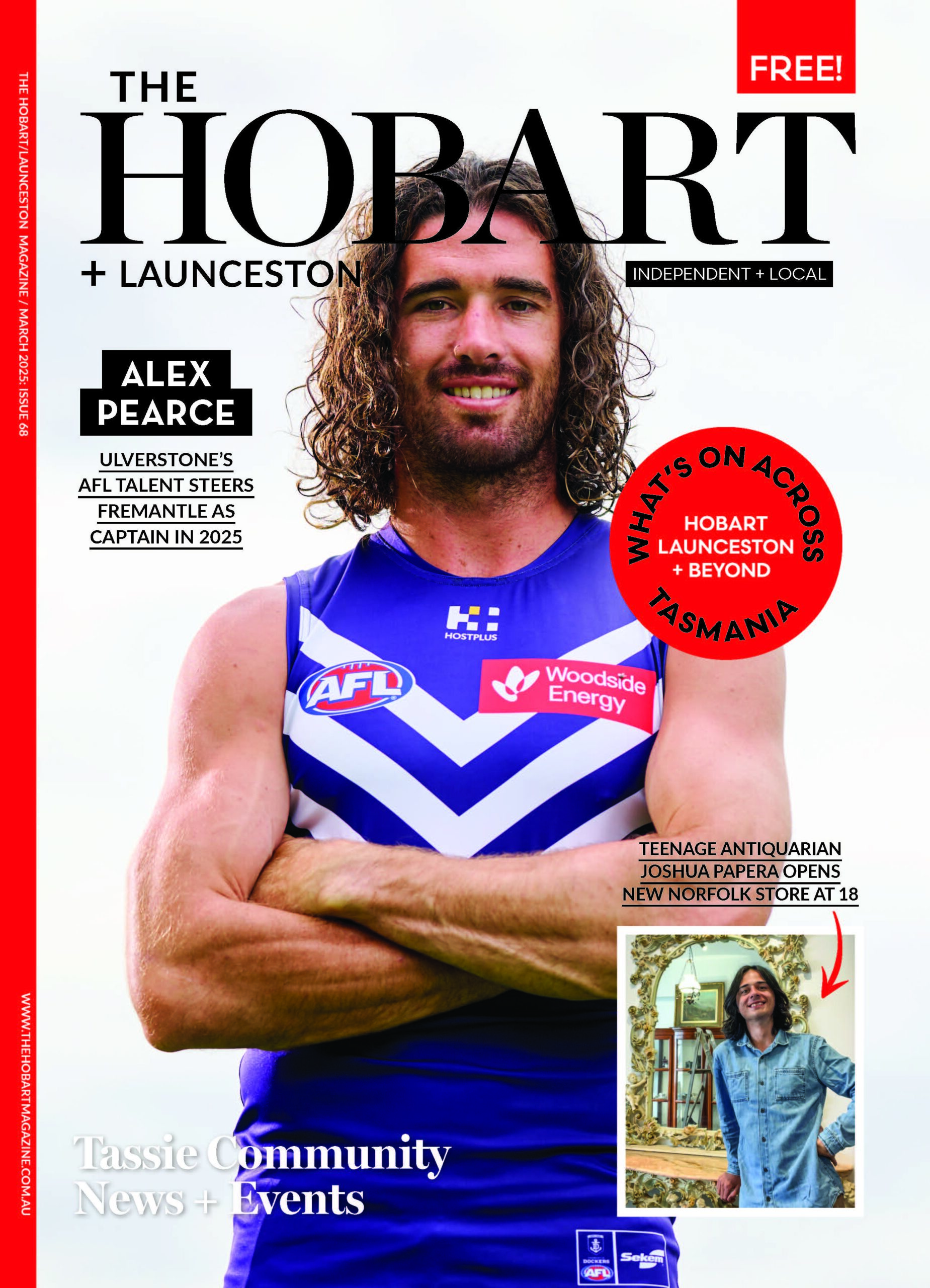Engineering New Winemaking in the Coal River Valley
by Stephanie Williams

Anh Nguyen followed her life purpose to switch from being an engineering academic to a biodynamic winemaker in the Coal River Valley. But, after winning a major agriculture award for innovation, Anh is bringing her past experience into her new direction.
Why did you start Torch Bearer Wines?
We started Torch Bearer Wines in 2017 after taking ownership of ‘ese vineyards. It’s the next chapter in pursuing our purpose in life – caring for the land, the environment and its natural world. We learnt it can take over 500 years to form an inch of topsoil, and hundreds of millions of years to form a fertile layer of soil full of micro life forms such as earthworms, microbes and fungi – or in other word the “wood wide web” that brings us foods and nurture life on Earth. It’s also where the CO2 is being naturally captured and stored every day. However, less than 100 years of modern farming and deforestation have been destroying and degrading the natural world by using toxic chemicals, i.e., pesticides, weed killers, and synthetic fertilizers of all kinds. We believe it’s everyone’s responsibility these days to act in whatever small way you can and that caring for the soil is the easiest, and most important steps toward a sustainable future.
Before becoming a winemaker you were an academic, and even had a PhD degree. Why the change?
Yes, I worked as an engineer and researcher, mostly on new product development used in drinking and wastewater treatment. The change from engineering into winemaking is a natural evolution – I want to show my inner self, my two little girls, and others that there is an “uncommon” way of life we should all be living, by pursuing what you are passionate about.
You’re originally from Vietnam. How has that influenced your winemaking?
Vietnam, and Asia-at-large, is a resourceful and resilient culture. There’s a very rich culture, or an obsession, for natural foods and drinks, always striving for making the best out of what nature has to offer. Craftmanship is considered an art form and often involves a deep understanding of nature. The mindset is that you either do it well or don’t do it – once you set
your mind to it, you want to be dedicated and to turn your craft into the divine.
Until recently, when Covid hit, you exported the majority of your wine. How are you navigating through that?
My main focus of export has been Asia, to me that’s the centre of growth. My first wine container for export arrived in Vietnam mid-2019. I’d like to share our high-quality wines in the new centre of growth. Selling a new product is always the hardest and crucial part of any business. So what I’m doing now will hopefully build up the demand not only for my products, but also Tasmanian and Australian wines in general. My focus hasn’t changed since Covid. It just got a bit harder as I’m not being able to travel overseas to set up the operation and promote our products but I’ve had time to do more experimental batches of wine.
You developed a technology based solution to monitor conditions in the vineyard. Can you tell us about that?
I’m still practicing engineering everyday. The result is a farm monitoring and controlling system named NeVerLand.ai. One of the first products is Vine-AI, a network of sensors to monitor essential conditions of the farm (e.g. soil moisture and microclimate data), data integration and collection to enable farm managers to record and monitor conditions from afar. Agriculture is about 20 to 30 years behind other fields in terms of advanced technology adaptation. As a farmer with an “unusual” background, I hope to bridge that gap. I received the 2019 AgriFutures Award in Tasmania for this new solution.
What makes your Coal river Valley vineyard special?
‘ese vineyard is in Tea Tree. It’s a very tough site with extreme hot and cold microclimate. It’s a low point in a narrow section of the Valley that attracts a lot of winds and frost – being the two worst climate conditions to grow vines! However it’s where a very thick ancient layer of rich rocky clay settled, which gives the vines deep roots and a lot of nutrients and minerals. Great wine comes from great quality fruit, so we follow regenerative and natural farming principles to extract the best natural character- istics of the terroir into the grapes. Until recently, we have had tremendous setbacks due to frost which impacted yields. Thanks to a new frost controlling system run by Vine-AI, we are expecting a better yield for vintage 2021.
The vineyard is biodynamic – was it already biodynamic or did you have to convert it?
‘ese vineyard was neglected for four years before we became its guardian. It wasn’t in good shape when we took over, but the good thing is no herbicide or pesticides or synthetic fertilisers were used for those four years. Our first two years were the hardest when the natural ecosystem of the farm was still being built up and our holistic approach hadn’t kicked in. Vines were not strong enough to combat diseases. However, since last year, we’ve built up our top soil, and the vines are super happy and healthy.
Where can readers try and buy your wines?
Wine tasting can be arranged via 0469 440 995. You can order online at www.torchbearerwine.com/shop. We offer free shipping within Tassie.

